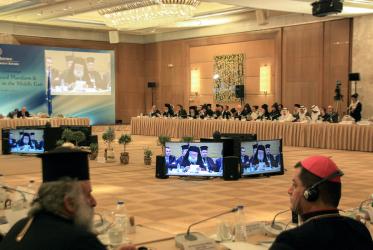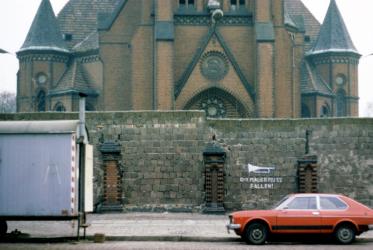Displaying 81 - 100 of 110
23 December 2015
WCC strongly condemned terror attacks
14 November 2015
Religion and Violence relationship probed
29 October 2015
International conference addresses challenges in the Middle East
22 October 2015
WCC urges responsibility for and support to the refugees in Europe
04 September 2015
New departure in Taizé towards an ecumenism of solidarity
20 August 2015
Panel revisits Dietrich Bonhoeffer’s ecumenical legacy
05 March 2015
Momentum builds for ban on nuclear weapons
16 December 2014
Christians are called to be peacemakers and to build just peace
02 December 2014
The Berlin Wall: looking back, looking forward
07 November 2014
WCC general secretary speaks on reality of wars at Sant’Egidio meeting
12 September 2014











